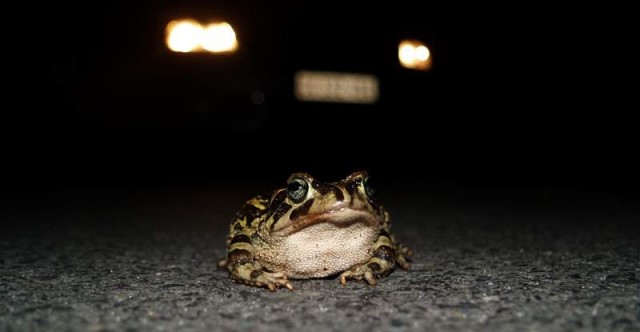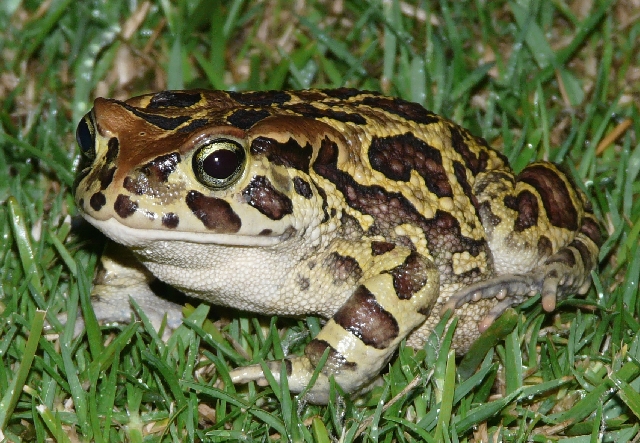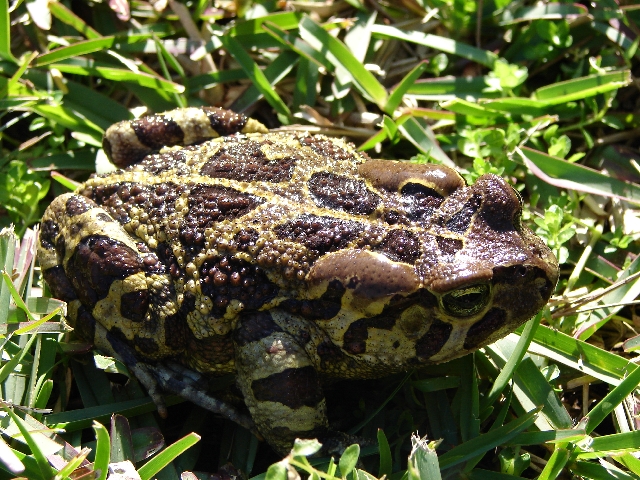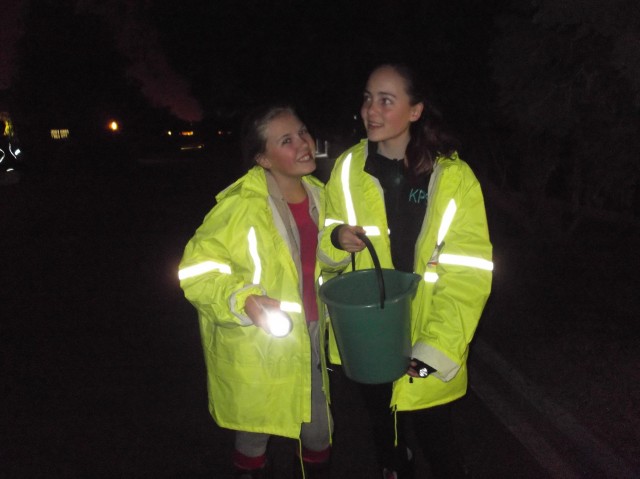On those cold, miserable winter evenings, when you were snugly tucked in front of the fire, Karoline Hanks was tackling the elements, on the lookout for toads.

It’s nightfall in Noordhoek. Angry black storm clouds shunt over the mountain and then clear temporarily to reveal a perfectly plump, full moon.
Right now, the rain is coming down in sheets, and that’s my cue to get togged up in a bright reflective rain suit and head out into the busy rush hour traffic.
I plug a cable into the cigarette lighter, fasten the revolving amber warning light onto the roof, slap two big magnetic decals onto the side and back of my vehicle, toss my clipboard, egg-flip and torches into the passenger seat and set off.
At an agonizingly slow 40 kms an hour, I cruise up and down Silvermine and Main Roads, wiper blades swishing and hazard lights flickering.
My eyes are peeled to the slick, shiny tarmac.
I do this for three hours. Fellow volunteer patrollers will be out scouring a different stretch of road, and a fresh pair of eyes will arrive to relieve me and scour my beat later in the evening.
And then I see one.

A female western leopard toad on the verge, facing the opposite side about to make her perilous way across the road. She’s massive – you cannot miss her bright, shiny form against the dark road. I quickly move to the side of the road, stop the car, flash a torch up and down in the direction of the animal to warn speedy home-comers and dash across the road to pick her up and move her over. Very often, she’ll emit a grateful little grunt from deep in her belly.
This can happen up to 20 times on a single patrol.

I am very often just too late. On one particular patrol, I had to move (and record) as many as ten dead toads with the (rather undignified) egg-flip. This is done purely for statistical reasons. It is the most heartbreaking aspect of the evening. So often, it is a matter of seconds – skip a beat, and you reach the shiny twitching mess in the wake of an uncaring motorist.
These days, the endemic western leopard toad (Amietophrynus pantherinus) is restricted to small areas of the Overberg and a few isolated pockets in the southern peninsula. As an ‘explosive breeder’, the leopard toad only breeds during a specific window period towards the end of the rainy season. They migrate almost exclusively on wet, rainy nights and, more commonly, under a full moon.
The urge to breed comes with the overwhelming impulse to move. They face a hazardous journey from gardens to ponds – where mating and egg-laying take place. Decades back, this would have been perfectly hazard-free. Today, however, the spaces between breeding ponds are now crisscrossed with electric fences, walls, canals, driveways, swimming pools and, worst of all, increasingly busy roads.
The scourge of suburbia and development has resulted in a significant decline in populations of the western leopard toad. Introduced or exotic fauna and flora like domestic ducks, koi fish and algae also threaten the integrity of breeding habitats.
This is where the patrollers come in. We are there to help the males, females, and even amplexus (mating) pairs get from A to B without being pancaked by rubber.
There are many patrols in a single season (up to 430 this year). 2012 was a particularly long one in the southern peninsula, with the toads starting their movement much later than usual and keeping us on our toes well into September.

The 2012 season saw a total of 562 toads saved in the Noordhoek/Sun Valley/Fish Hoek and Clovelly area. Sadly, it also saw about 130 senseless fatalities. On the busiest night of the season, a staggering 101 toads were encountered on the roads – just on the Noordhoek beat!
The Toad NUTS group has been up and running since 2008. Under the leadership of two passionate local residents (Alison Faraday and Suzie J’Kul), the group has grown from strength to strength and has managed to attract an astounding number of loyal, dedicated volunteer patrollers who give up their time and energy every season.
When confronted by the cynics – and there are many about – one is challenged on the degree of dedication, time and effort put into saving one species. Why spend so much energy saving a toad, I am asked – when thousands of people down the road are living in squalor?
Or… why bother? They’re just toads. Sure….and over there, there are ‘just’ wild dogs….or blue swallows…or riverine rabbits. Who gets to choose what is more important – when, let’s face it….choices abound!

Every single species is important, and though toads are not everyone’s cup of tea, these little guys are as vital to ecosystem integrity.
For more on what you can do to save this extraordinary species from the cliff edge of extinction, visit Toadnuts on Facebook
To comment on this story: Login (or sign up) to our app here - it's a troll-free safe place 🙂.![]()






